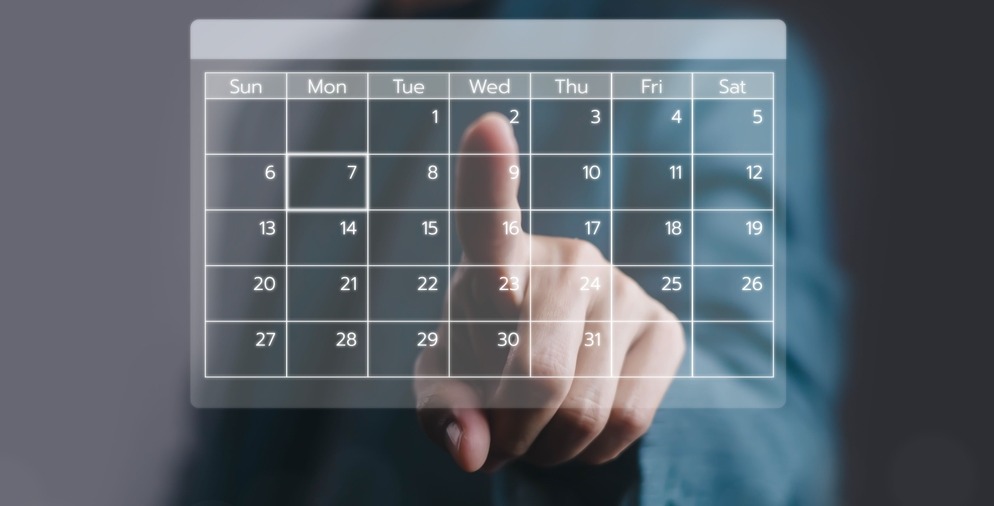

Appointment Booking Data in UAE Retail | Customer Experience Management | Aristostar UAE
Using Appointment Booking Data to Predict Peak Traffic Areas in UAE Retail
Modern retail in the UAE relies on an accurate understanding of how customers move through retail spaces, how much time they spend in stores, and what factors shape attendance peaks. In essence, customer service experience is imperative to maintain market relevance. In highly competitive conditions, the integration of appointment booking data with footfall analytics, conversion, waiting time, and customer behavioral patterns plays a key role. This approach allows you to predict maximum traffic zones, optimize planning, staff allocation, and marketing campaigns.
According to industry data by Khaleej Times, total retail sales in the UAE is projected to grow to $139 billion by 2028. Tourism also increases the burden on shopping malls, with more than 17 million international visitors arriving in Dubai alone every year. These indicators create the need for deep flow analytics.
The Role of Appointment Booking Data in Traffic Management
Appointment booking has long ceased to be just a convenience service. Today, more than half of the buyers say they book visits more often than before 2020. Booking data records contact information, preferences, and purchase history and allows you to analyze not only the flow, but also the probability of conversion to a purchase.
The integration of appointment booking with footfall data helps to identify attendance peaks at specific hours and days of the week. For example, if the chart shows an increase in visits on Thursday evening, this is a signal to adjust the staff schedule and open additional cash lines.
Thus, reservations become a source of the first level of data that provides a forecast for the real footfall and allows you to estimate the load on the retail space in advance.
Optimization of Planning and Zoning
Store layout and retail zoning play a crucial role in flow management. Dwell time and heat mapping analytics show which zones are of interest and which remain "cold". If the system detects a high concentration of meetings in the premium goods area, it is worth placing a cross-merchandising group nearby. Practice shows that proper zoning can increase the average check by 12%-18%.
Using booking data, you can plan flexible spaces. For example, set aside time zones for demonstrations, personalized consultations, or launching promotions. In Dubai, where large malls compete for the attention of customers, such solutions make it possible to evenly distribute traffic and avoid congestion near anchor tenants.
Queue Management and Service Quality Improvement
Queues remain one of the main factors of customer dissatisfaction. Research shows that optimizing processes through a predictive queue management system reduces average waiting times by 65%, and automating flow allocation can improve operational efficiency by 90% or more.
If the booking data indicates a high flow in the early hours of Saturday, retailers can open additional checkout areas in advance. Appointment booking also helps you understand which clients require longer service and distribute the workload to employees in advance. As a result, customers spend more time choosing rather than queuing, which directly increases the basket size.
It is important to take into account the indicators of abandonment of the basket. Personalized visits help reduce massive numbers by turning online interest into offline purchase using the ROPO (research online, purchase offline) model.
Forecasting and Personalization Through Behavioral Analytics
The combination of mobility data, footfall analytics and appointment booking makes it possible to build forecasting models. For example, the system may reveal that in certain weeks before Ramadan, customers book visits to electronics stores more often, and during the Dubai Shopping Festival, activity shifts to the fashion segment.
The use of LDA and LSI analysis on large amounts of data helps to identify sustainable topics such as shopper behavior, marketing effectiveness, and personalization of offers. These topics become the basis for strategies where appointment booking acts not as an auxiliary service, but as a tool for forecasting and managing retail traffic.
For consumers, the value lies in improving the quality of service, the availability of consultants, and the convenience of moving. For businesses, it's about increasing conversions, optimizing staff, and reducing costs.
In an environment where UAE retail is showing steady growth and a high level of competition, the use of appointment booking data is becoming an integral part of flow management. Appointment booking connects personalization, resource planning, and footfall analytics into a single system.
























